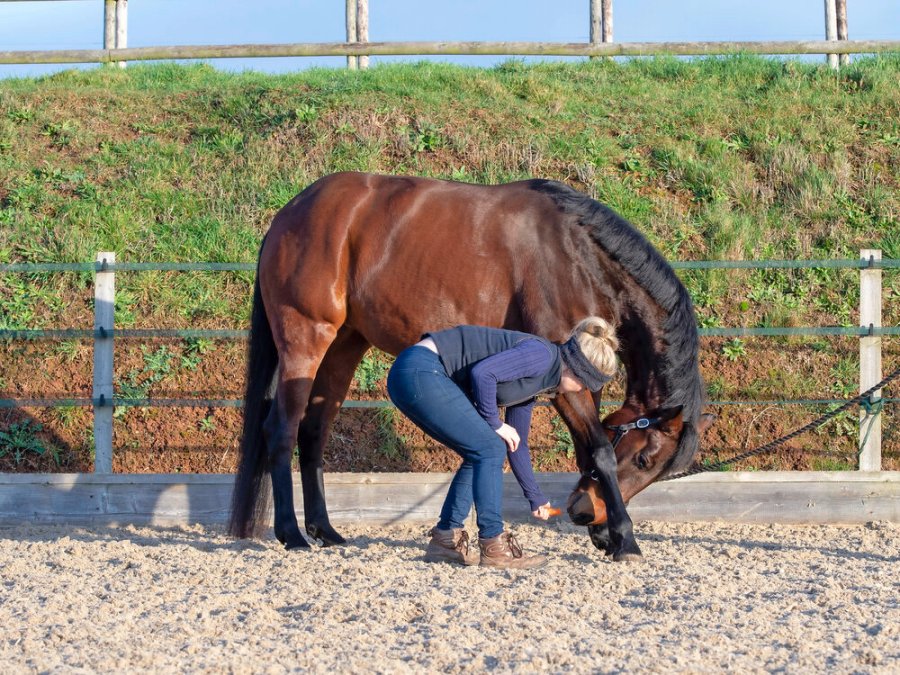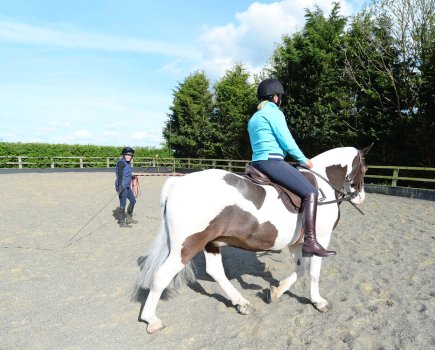Physiotherapy has long been shown to offer many benefits to horses. Veterinary physiotherapist Hayley Marsh shares two stretches you can try at home with your horse.
One of the main long-term effects of stretching is an increase in overall flexibility. When you make stretching a habit, you slowly stretch out the connective tissues.
Over time, this lengthens the tissues, improving the range of motion in the joints and the overall ability to move.
Stretching these muscles and connective tissues also helps relieve muscle stiffness and reduces the risk of joint degeneration.
Foreleg and hindleg
Pick up your horse’s foreleg and, with both hands on the fetlock, ease the leg forwards towards your horse’s nose and hold for 10 seconds.
For the hindleg stretch, gently ease the hindleg forwards towards the foreleg and hold for 10 seconds.
Start these exercises low to the ground then, as your horse becomes more supple to the movement, you can ask for more range.
Carrot stretches (for back, abdominals and neck)
Using a carrot, persuade your horse to bring his head down between his front legs. Encourage him to stretch as far as is comfortable and hold the stretch for 10 seconds.
Next, stand with your back to your horse’s shoulder and get him to bend his head and neck around you, ideally keeping his head vertical, and aim for the direction of the back fetlock.
Aim for a smooth stretch – not a snatch – and hold for 10 seconds. Repeat on both sides.
TOP TIPS
- Don’t force your horse into a stretch, only guide him. Stretching should be done when your horse is warm.
- Don’t stretch your horse while he is tied up, and make sure the footing is secure to prevent him slipping.









